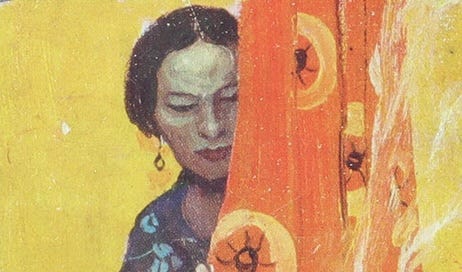Lift not the painted veil which those who live
Call Life: though unreal shapes be pictured there,
And it but mimic all we would believe
With colours idly spread,—behind, lurk Fear
And Hope, twin Destinie…
Keep reading with a 7-day free trial
Subscribe to Read the Classics with Henry Eliot to keep reading this post and get 7 days of free access to the full post archives.




